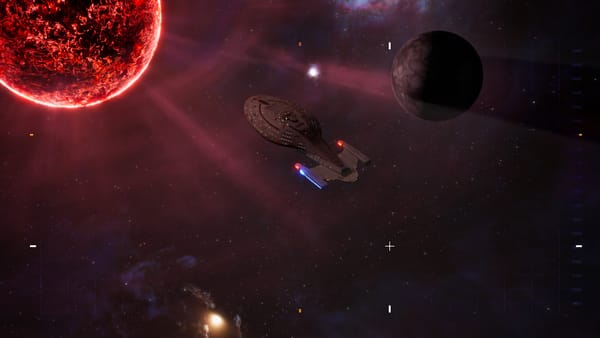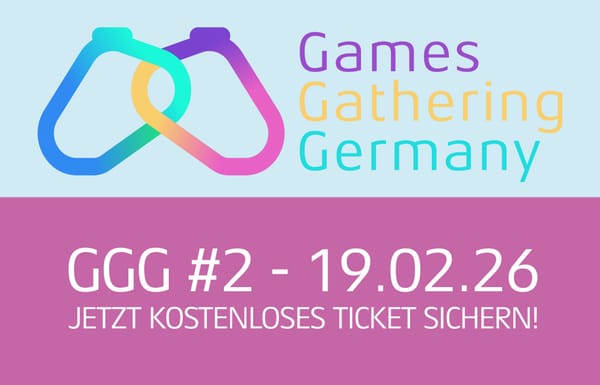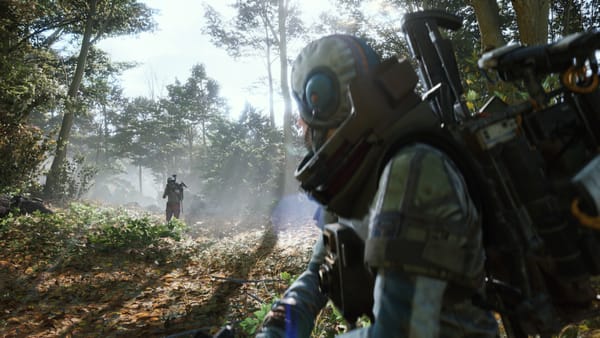Little Rocket Lab
In Little Rocket Lab, factory construction and automation are combined with cozy village life simulation in a charming retro pixel style. This pleasant little surprise of a game is from Teenage Astronauts and No More Robots.


In Little Rocket Lab, factory construction and automation are combined with cozy village life simulation in a charming retro pixel style. This pleasant little surprise of a game is from Teenage Astronauts and No More Robots.

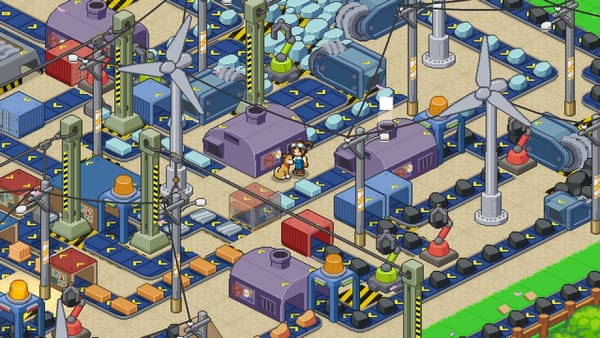
In Little Rocket Lab, players take on the role of Morgan, a young engineer who returns to her family's hometown only to find that both her parents' house and the town are in disrepair. However, she is determined to fulfil her family's old dream of building their own rocket. To achieve this, she must research and construct clever contraptions and factories, ranging from simple drills and furnaces to complex assemblers, cranes, and miles of conveyor belts. These will help her to fulfil her ultimate goal and assist the locals.
Players' missions involve placing machines and constructing vast factories to extract, transport and process resources from different locations around the world, such as Seaside, the Hydro Dam, the Mountain and the Railyard. As they automate production lines and construct adorable mechanical companions, players will interact with the locals, assist them with their issues and forge friendships, thereby becoming the focal point of the community. This is how they will transform local resources into useful materials and get industry back on track in sleepy St Ambroise.
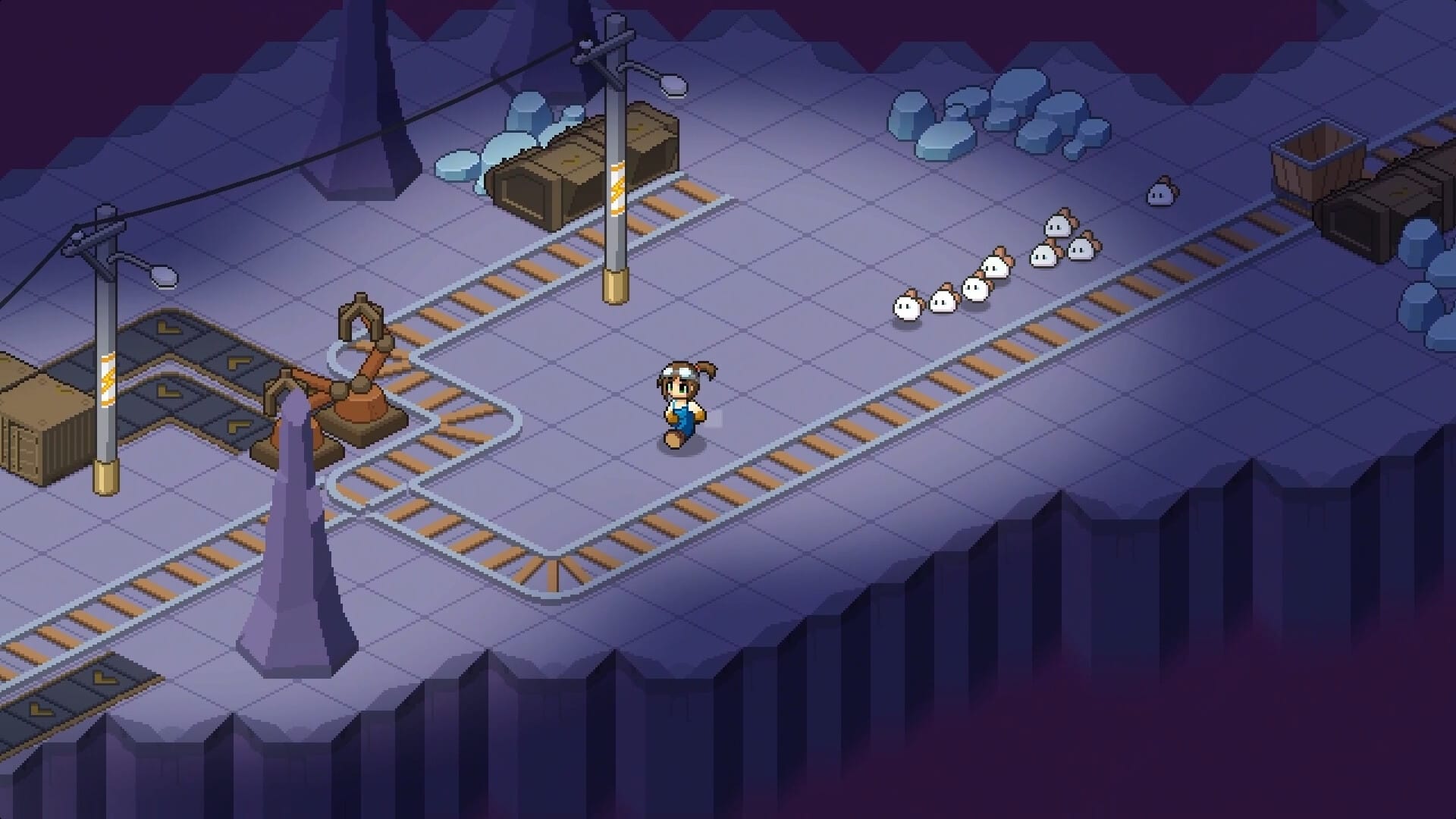

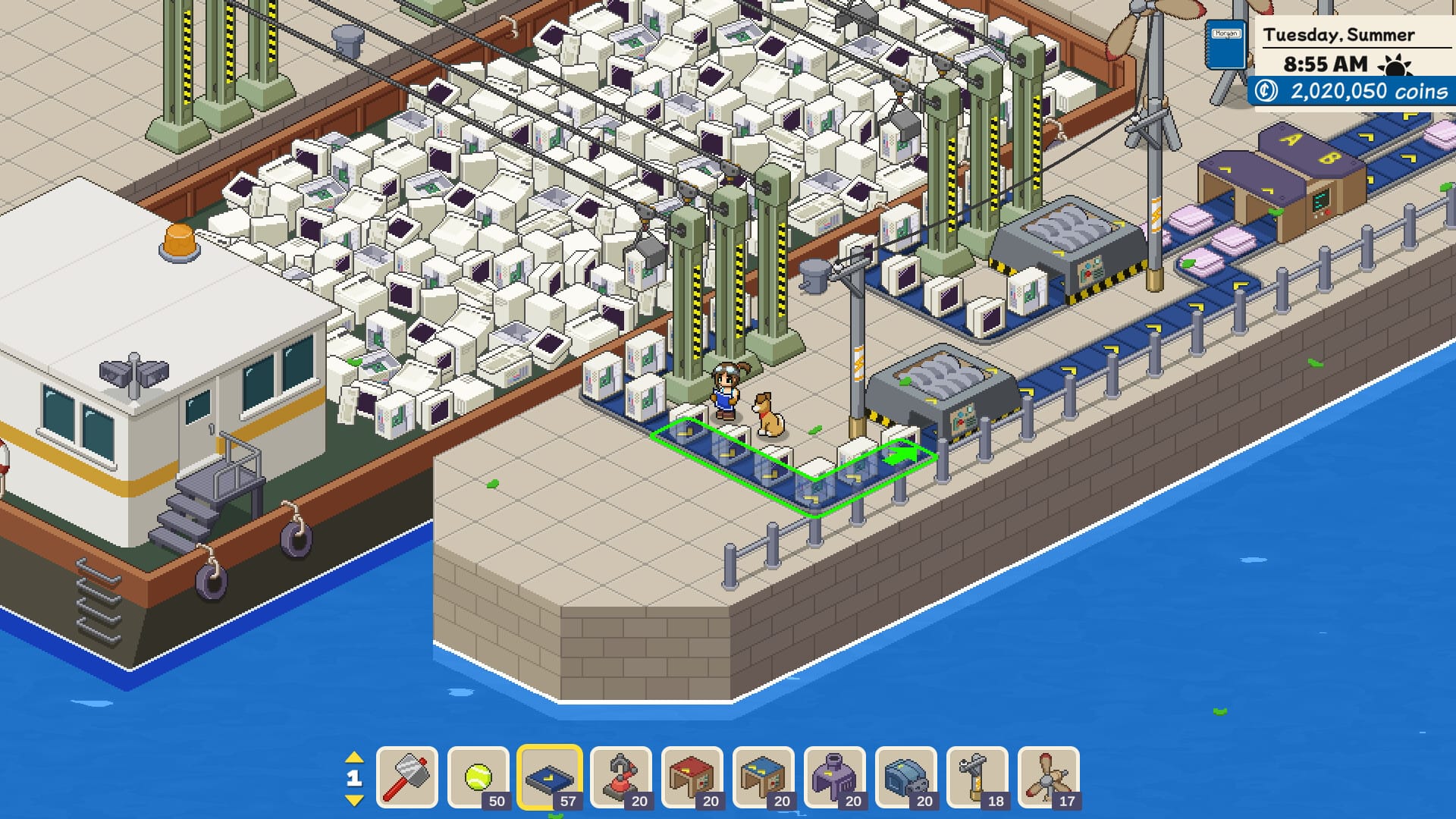
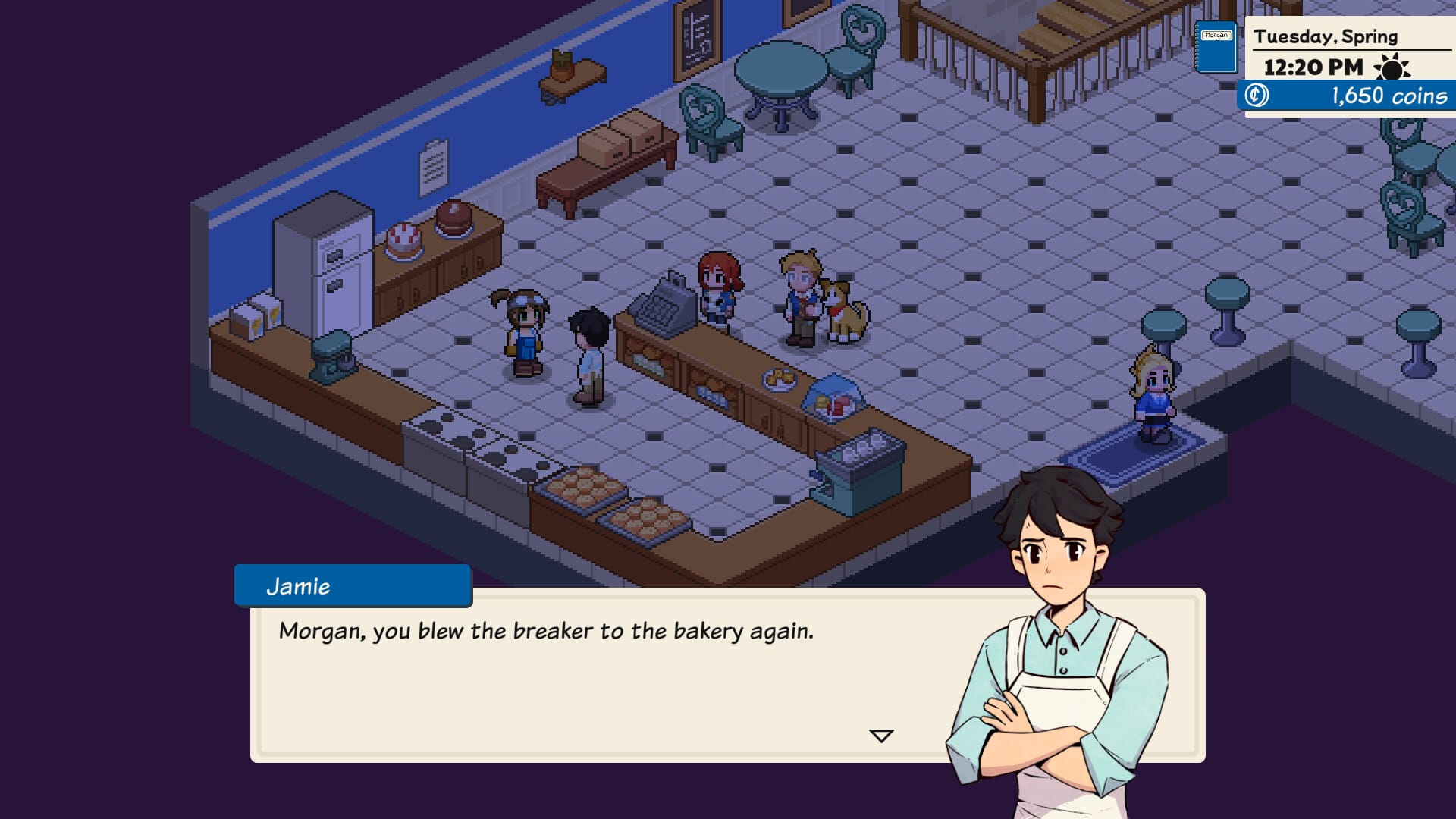
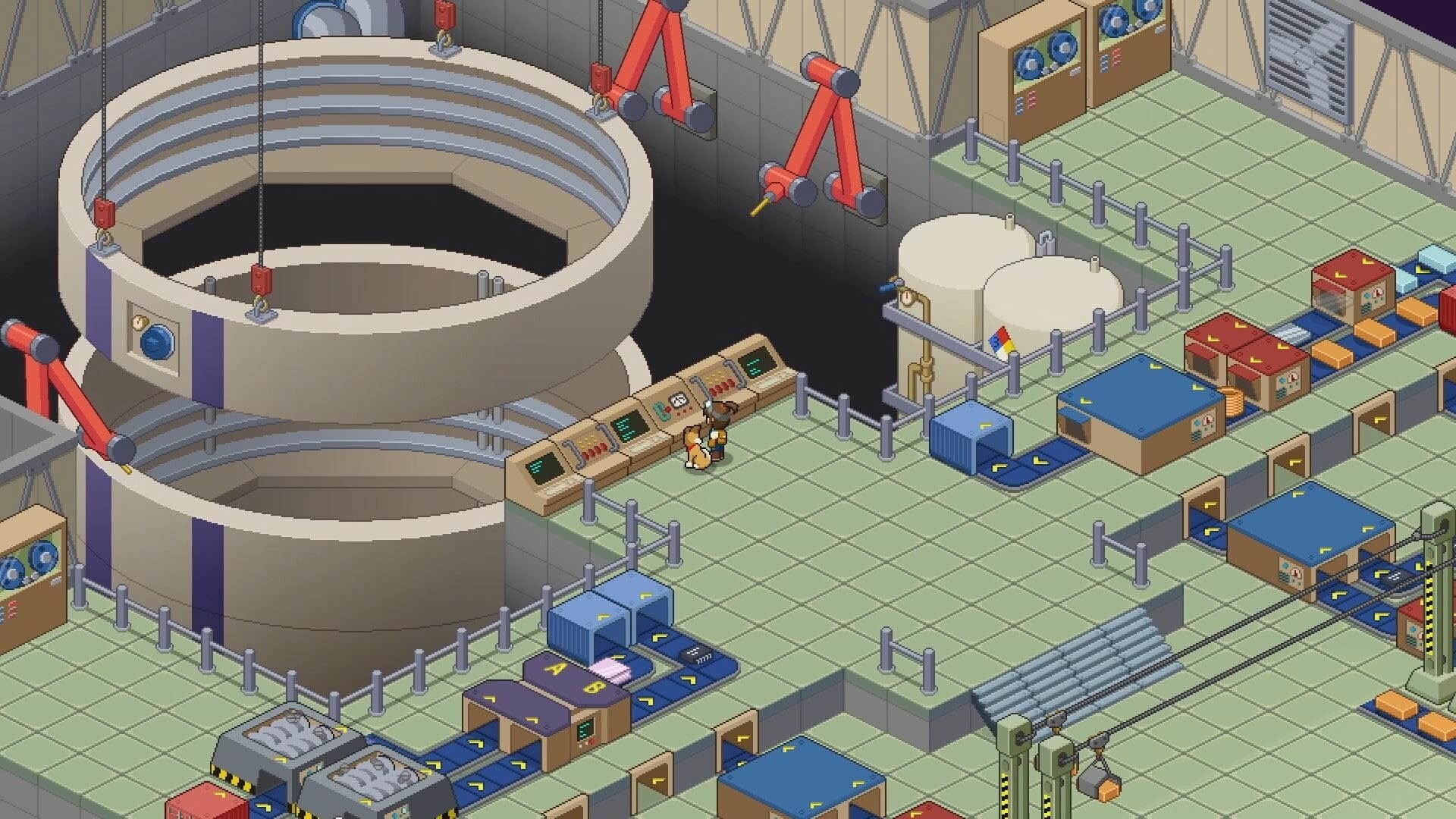
Little Rocket Lab, Teenage Astronauts & No More Robots
The gameplay is reminiscent of games such as Factorio or shapez 2, but it feels more relaxed, without pressure, and almost cozy. However, anyone expecting a deep, technical automation system like Factorio's may be disappointed, as the automation options and depth of production chains are somewhat limited by comparison. This, however, fits in with the cozy atmosphere. The pacing is also slower, with less focus on factory building and optimisation than in Factorio, but it's still satisfying. While players fill their hometown with conveyor belts, production buildings and other industrial structures, they must also ensure that residents can move around the city normally, which is why they build gripper arms to carry them across the conveyor belts. As well as factory work, the game thrives on interaction with the town's residents, whose stories you discover and whom you help with products manufactured by players. This supports the residents and revitalises the town. Thus, the game conveys a sense of community and renewal.
So, Little Rocket Lab combines the familiar concepts of farming and automation games with narrative, social interaction, and a pleasant, feel-good atmosphere. However, it can only be played alone, with no co-op options available. The game could benefit from some quality-of-life optimisations, particularly with regard to saving and the UI.
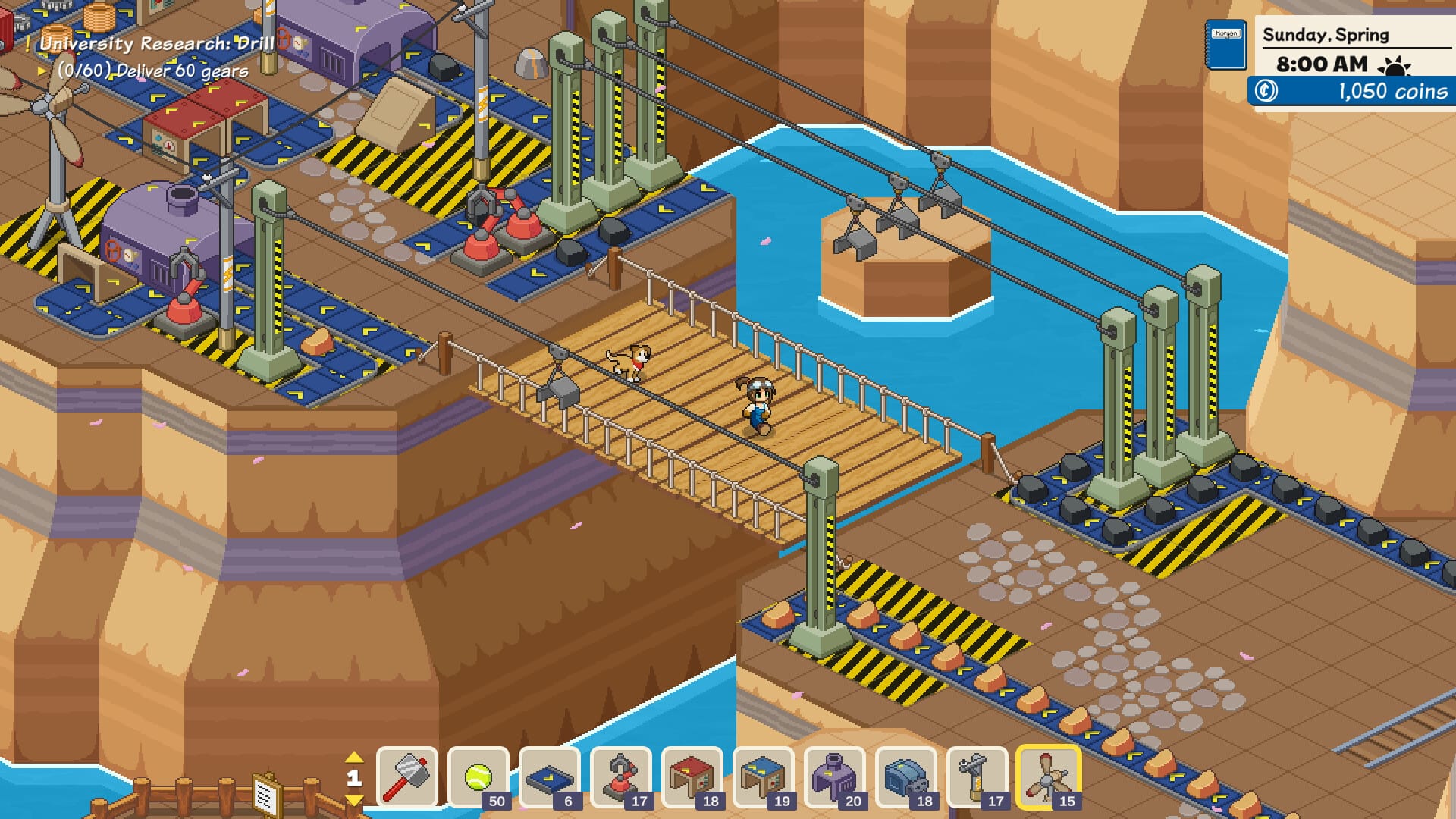
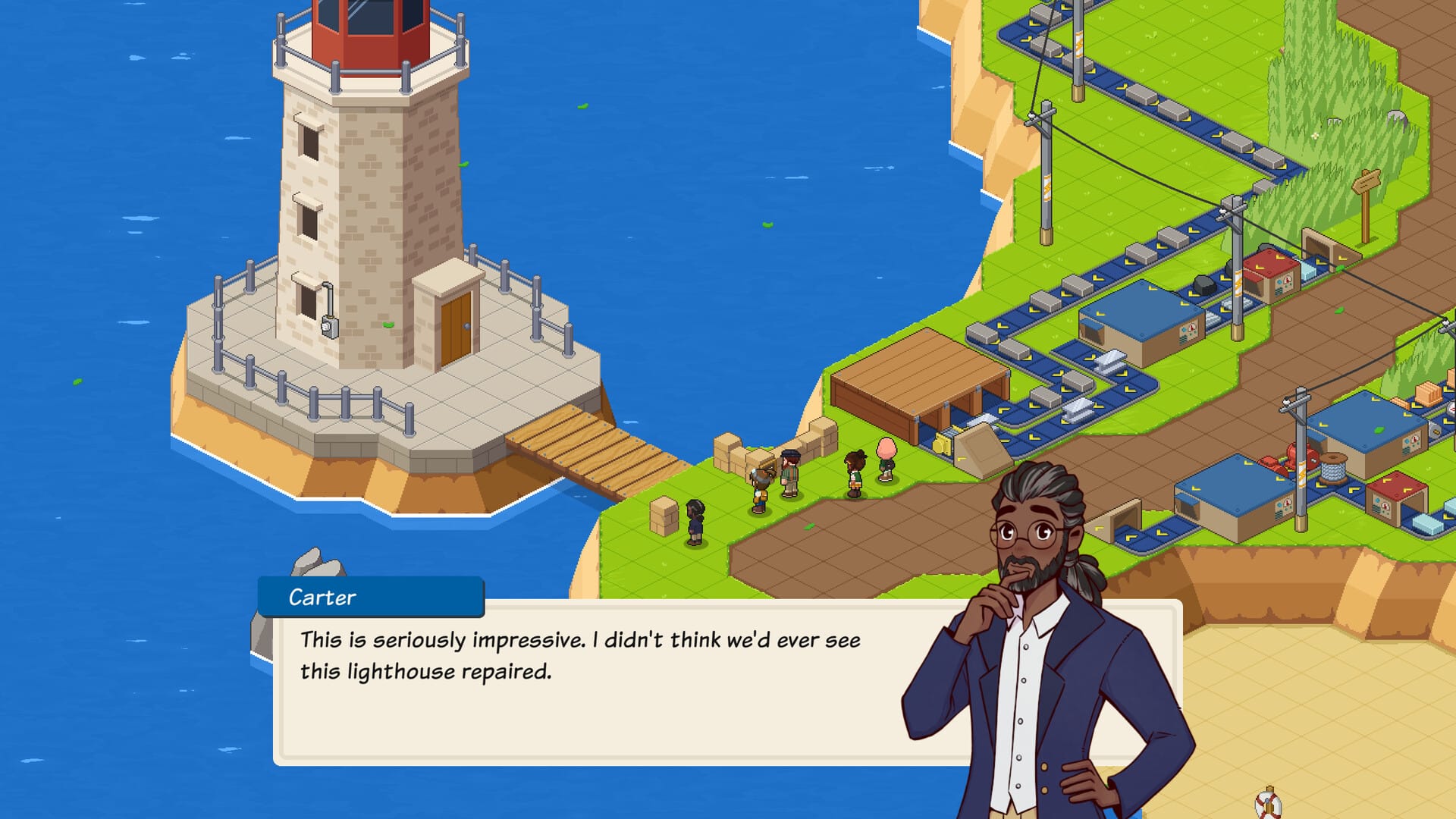
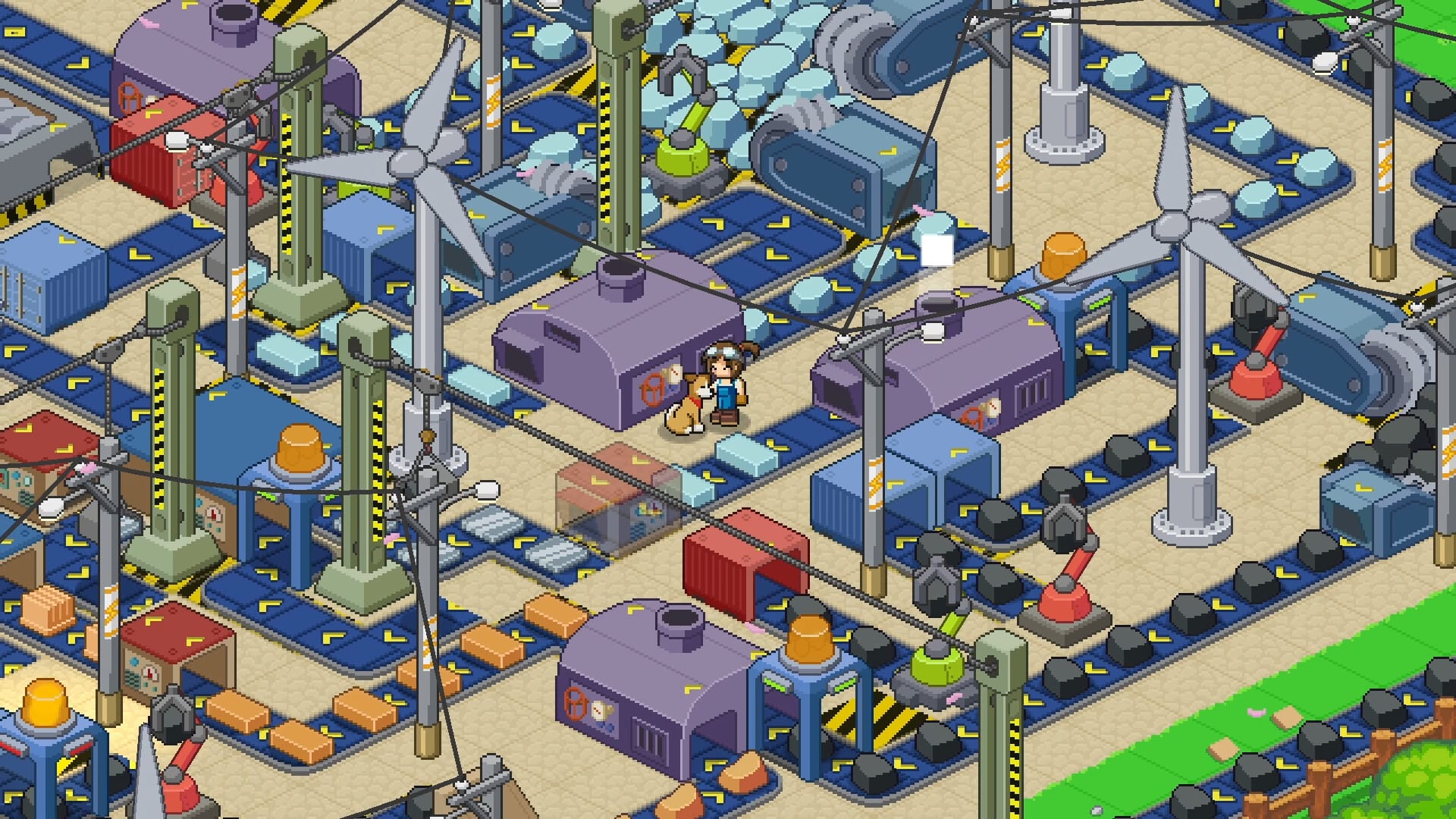

Little Rocket Lab, Teenage Astronauts & No More Robots
Little Rocket Lab was developed by Teenage Astronauts, a company based in Winnipeg, Manitoba, Canada. The studio was founded by Kyle Schmitz in October 2022. It signed a publishing deal with No More Robots in the same year and finalised a deal with Microsoft in 2024 to include the game in its Game Pass subscription service.
The name of indie game publisher No More Robots says it all: it advertises itself as 'a real publisher with real people'. Founded in 2017 by Mike Rose and investors Simon Carless and Jas Purewal, this British indie game publisher is based in Manchester. "No More Robots doesn't just sign dozens of games, and hope that a portion of the catalogue sells. We care about every single game and studio we partner with, working hard to find each game their own audience. No More Robots is a data-driven publishing label, utilizing wide-ranging video game sales figures and statistics to pin down exactly what makes games sell, instead of throwing money at a wall and hoping it sticks," states the company's self-description.
Teenage Astronauts and No More Robots released Little Rocket Lab on 7 October 2025 for PC via Steam (€17.99) and in PC Game Pass.
Little Rocket Lab is a charming and cozy genre mix that skilfully combines automation with aspects of a life simulation.




